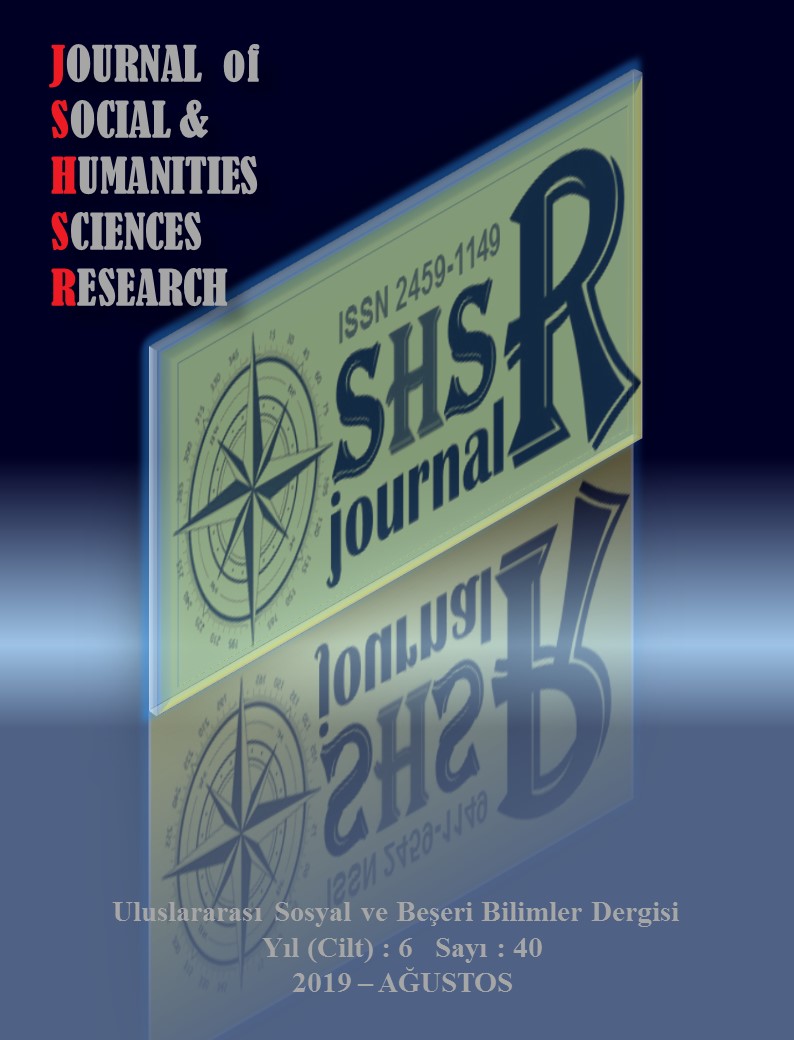THE RELATIONSHIP BETWEEN LIFELONG LEARNING COMPETENCIES AND GENERAL SELF-EFFICIENCY OF LIFE LONG LEARNING CENTER (HBOM) STUDENTS (ISMEK EXAMPLE)
DOI:
https://doi.org/10.26450/jshsr.1299Keywords:
Lifelong Learning, Lıfetime Learnıng Compedencıes, General Self-efficacy, İsmekAbstract
In this study, the determination of lifelong learning and general self-efficacy levels of Istanbul Metropolitan Municipality Lifelong Learning Center (ISMEK) trainees, the relationship between gender, marital status, age, educational status and lifelong learning competencies and general self-efficacy of these competency levels were examined.
Correlational survey model, which is one of the research scanning models, was used in the research. A total of 450 ISMEK trainees (293 female and 157 male) participated in the study during the 2018-2019 academic year in Fatih district of İstanbul. In the study, "Lifelong Proficiency Scale" and "General Self-Efficacy Scale" were used to evaluate the lifelong learning and general self-efficacy of ISMEK trainees. The Lifelong Adequacy Scale was prepared by Akçay and Babanlı (2018) and consists of 68 items in 8 dimensions. The General Self-Efficacy Scale was developed to test the competence belief of different environments to cope with new and difficult tasks, and it consists of 10 positive items. Aypay (2010) The data collected with the scales were analyzed by SPSS 24.0 statistical software.
According to the findings of the research, the general lifelong learning competence and general self-efficacy of ISMEK trainees are “high”. There is a positive relationship between lifelong learning competencies and general self-efficacy. In terms of sub-dimensions; The trainees' communication in the mother tongue, learning to learn, mathematical thinking, effective citizenship awareness, self-management, cultural and artistic awareness are “high” and foreign language communication and digital competencies are “intermediate”.
Lifelong learning competencies show statistically significant differences according to gender, age, marital status and educational status. There was no difference between the general self-efficacy levels of the students according to gender, marital status and educational background. On the other hand, general self-efficacy levels of individuals differ according to age and general self-efficacy increases with age. As a result of the research, general self-efficacy levels of ISMEK trainees are “high. On the other hand, general self-efficacy levels of trainees do not differ according to gender, marital status and educational level. There is a difference between general self-efficacy levels of ISMEK students according to age, there is a positive relationship between age and self-efficacy and self-efficacy perceptions increase as the age of individuals increases. There is a weak and positive relationship between ISMEK trainees' lifelong learning competencies and general self-efficacy levels. Within the scope of the research, it is a positive result that lifelong learning competencies of ISMEK trainees are generally high. However, it was determined that the communication competencies of the participants were lower than the other competencies. From this point of view, studies / changes can be made in order to obtain more successful results in the methods and techniques used for foreign language teaching which has been an important problem area for many years for our country.
In order to increase the inclusiveness of the results of this research conducted with the participation of ISMEK trainees only, new researches can be carried out including formal education institutions. Qualitative academic studies including detailed interviews can be conducted in order to be able to deal with lifelong learning and general self-efficacy of individuals in more detail.
Downloads
Published
How to Cite
Issue
Section
License
Copyright (c) 2019 INTERNATIONAL JOURNAL OF SOCIAL HUMANITIES SCIENCES RESEARCH

This work is licensed under a Creative Commons Attribution 4.0 International License.


